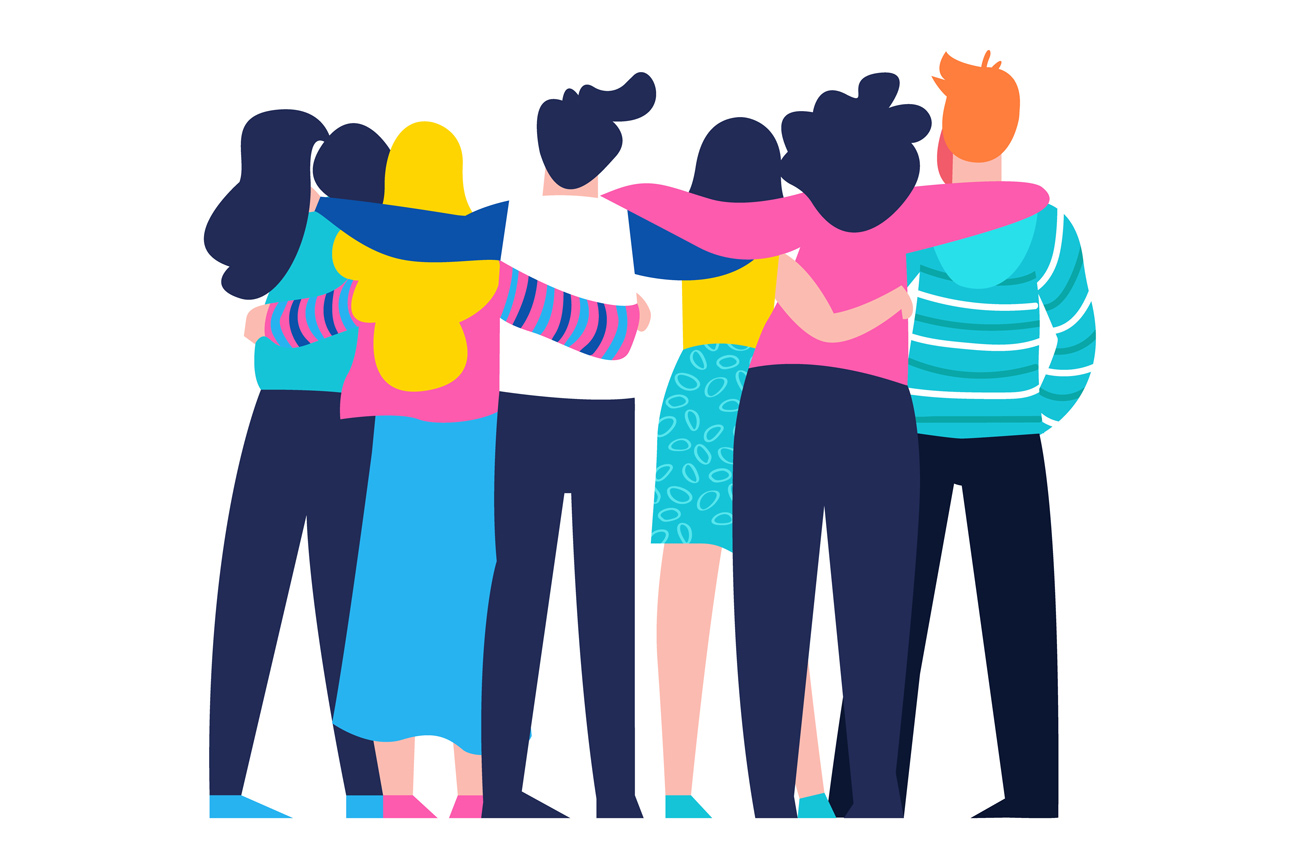
Mental Health Advice – 6 People On The Best Advice They Have Ever Received
There are many resources regarding advice about mental health online, in books and in medical settings. However, you may not find that this information ‘clicks’ until it is translated into words that are relevant and relatable to you. This is why it is important to hear from everyday people who have been affected by mental health issues.
Everybody experiences and deals with mental health issues in different ways. In this article, we hear from six people who have provided us with what they feel is the best piece of mental health advice that they have received. Although not all of these pieces of advice may speak to you, you might only need one or two to help you better understand your mental health or take control over a certain aspect of it.
“This too shall pass” – Ahmed
“A reminder that things will always change and that it won’t feel this way forever. When it’s a good thing it won’t be around forever so enjoy it before it passes; when it’s a bad thing you can survive it because things will change. Getting used to and accepting change was a life changer for me and allows me to enjoy things even if they come to an end. Specific example: jobs, enjoying the honeymoon period, not getting stressed about being bored/unproductive at work.”
We all experience changes in our lives, whether we see them as positive or negative. Using healthy methods of adjustment can help us adapt to these changes while preventing a negative impact on our mental health. These methods might include:
- Finding something familiar that grounds you throughout the change
- Working to remove uncertainty bias – the habit of thinking negatively about change
- Seeking support in friends or family to help you through new experiences
Training your brain to accept change will help you with further changes as you progress throughout life.
“Stay connected to friends and family members as much as possible” – Veronica
“Even if they don’t understand exactly what I am going through they can offer support and make me feel less like I’m alone. Seeing friends can really help boost my mood, even if I really don’t feel like socialising. And it doesn’t have to be a big night out, a simple coffee meet, or a phone call is enough to make a big difference to how I feel.”
According to Stanford Medicine, “People who feel more connected to others have lower levels of anxiety and depression”. This is because regular positive interactions with friends and family creates a positive feedback loop, which benefits social, emotional and physical wellbeing. In older adults, where loneliness is among the most common causes of mental health issues, a socially active lifestyle has been shown to increase wellbeing and life satisfaction.
“Be present” – Jamie
“I have spent a lot of time dwelling on past mistakes and things that could have gone differently, or being anxious about the future and what might happen. Every time I thought about these things, my mood dropped and it would sometimes last the entire day. I couldn’t shake this habit until somebody told me that the past and future are not real – they only exist inside my head – and the only thing that could affect me in reality is the present.”
It is very easy to get caught up in the past or future when we are daydreaming. Perhaps you do this when you experience a lull at work, or just before you go to sleep. While reminiscing about a happy memory or getting excited about a future event can make us feel positive, negative emotions can arise from worrying about the past or future. Worrying and rumination (repetitively thinking about a problem and its causes and consequences) are symptoms of anxiety and depression, and have been shown to cause reduced cognitive control, meaning that other mental abilities such as memory and the ability to concentrate may be impacted.
When you begin to feel low regarding the past or future, try to think about three things that you can hear, see and touch. This is a popular exercise which refocuses your mind and helps you remain in the present moment.
“You have control over the way you react to a situation” – Saskia
“There are many situations we encounter in life which are out of our control. But what we can control is how we react to those situations. If I’m particularly sad, angry or frustrated by something, I let myself feel those emotions, and then I think logically about how I can deal with that situation and move on from it. That might be by giving myself the proper self-care that I need at the time.”
Dr Christos Kouimtsidis, Consultant Psychiatrist at The London Psychiatry Centre explains: “It can be challenging to learn how to control your reaction to a triggering event in your life. However, by training your mind and body to think before you react, you can learn how to stop your emotions from spiralling, and instead sit with them until you are ready to make your next move. This can help with those who experience situational depression or anxiety, and have symptoms such as aggression, continuous low mood, suicidal thoughts or thoughts of self harm.”
“Treat a poor mental health day as you would a normal sick day” – Maddy
“In order for mental health to be taken seriously, we need to start giving it the same gravitas as we would our physical health. This means that if you take a day off work because you have the flu, you should do the same when a mental health issue causes you to feel like you are unable to work.”
Taking a day off work when you are feeling overwhelmed, highly stressed, anxious or depressed can be key to your recovery. If your employer finds this difficult to understand, try to frame it like this: as an employee, you are less productive if you are unable to recover from poor mental health. In fact, if workplaces in the UK had a better understanding of and support for mental health, it would save businesses up to £8 billion annually.
“If it won’t matter in a month, try not to unnecessarily focus on it” – David
“When you linger on every little thing that goes slightly wrong in life, you get caught up in a spiral of negative emotions. Think about each problem and whether it will matter in a month’s time. If it won’t, try not to focus on it too much. It might not even matter tomorrow!”
When a problem arises, it’s easy to let it mount up with any other stressful situations in your life. Instead, try to give each problem context by thinking about how your future self might react to it.
For example, you might have broken your favourite mug. That would make you feel sad or frustrated today, but a future ‘you’ would probably look back and think about how insignificant this problem was, and regret how much you stressed over it.
Further Mental Health Support
If you are in need of further advice, try asking a trusted friend or family member, who may be able to offer their perspective on mental health. Additionally, there are many online groups and helplines that can offer support.
You may also wish to speak to a mental health professional, who will be able to provide practical help or treatment. At The London Psychiatry Centre, our experienced consultants offer discrete, one-to-one sessions for the full spectrum of mental health issues.
To get in touch with us, use the contact details below:


